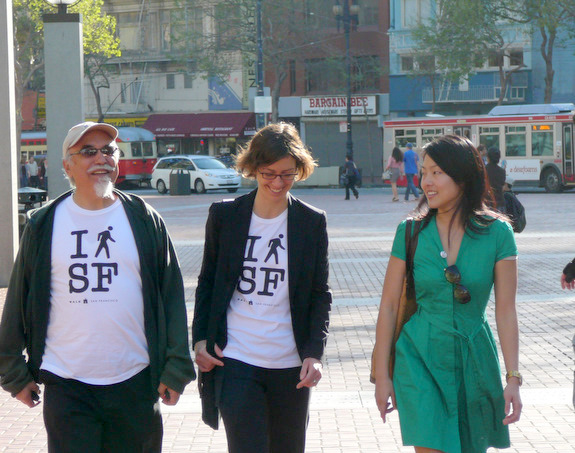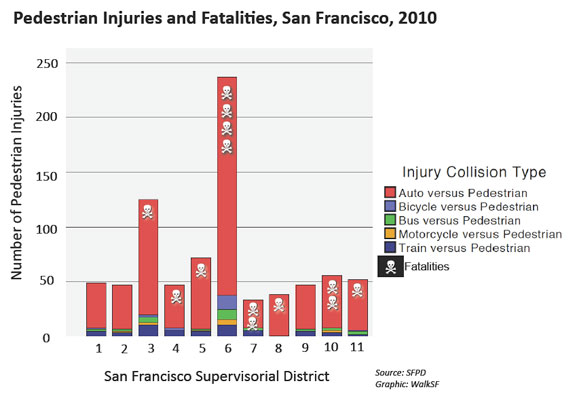
You may not have known it, but today is National Walk to Work Day, and pedestrian advocates from Walk San Francisco marked the occasion by walking to work with Supervisor Jane Kim and reminding residents about two important City Hall hearings coming up on pedestrian safety.
Kim will hold a hearing on pedestrian safety at a Public Safety Committee meeting next Thursday, April 7 at 10:30 am in City Hall, Room 250. The following Monday, April 11 at 10 am, D1 Supervisor Eric Mar will hold another hearing to address citywide pedestrian issues.
"Walk SF will be calling for safe-speed school zones, a Pedestrian Action Plan with clear commitments, more funding for street improvements, and police enforcement of laws that protect pedestrians," the organization said in its newsletter.
Kim, whose District 6 includes the Tenderloin and SoMa -- which has the highest rates of pedestrian injuries and fatalities (see graph below the break) -- has made pedestrian safety a top priority.
"When she looked at the public safety issues in her her district, she found that injuries to pedestrians was the biggest issue that affected all her constituents," said Elizabeth Stampe, Walk SF Executive Director. "They found that a lot of people knew people who'd been hit by cars, especially kids."
As we've written on Streetsblog, there is growing momentum around pedestrian safety in San Francisco. A task force is currently developing a Pedestrian Action Plan to meet the goals of an executive directive issued by the Mayor's Office late last year, which calls for reducing serious and fatal pedestrian injuries 25 percent by 2016, and 50 percent by 2021.





